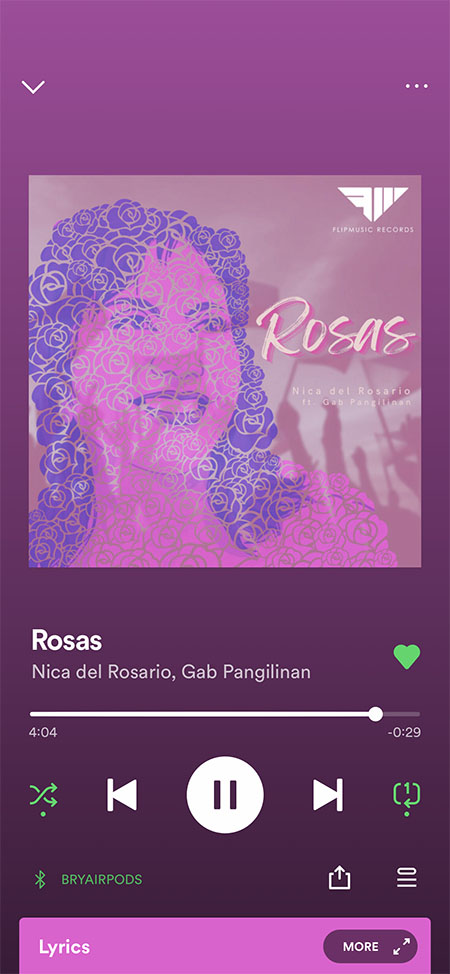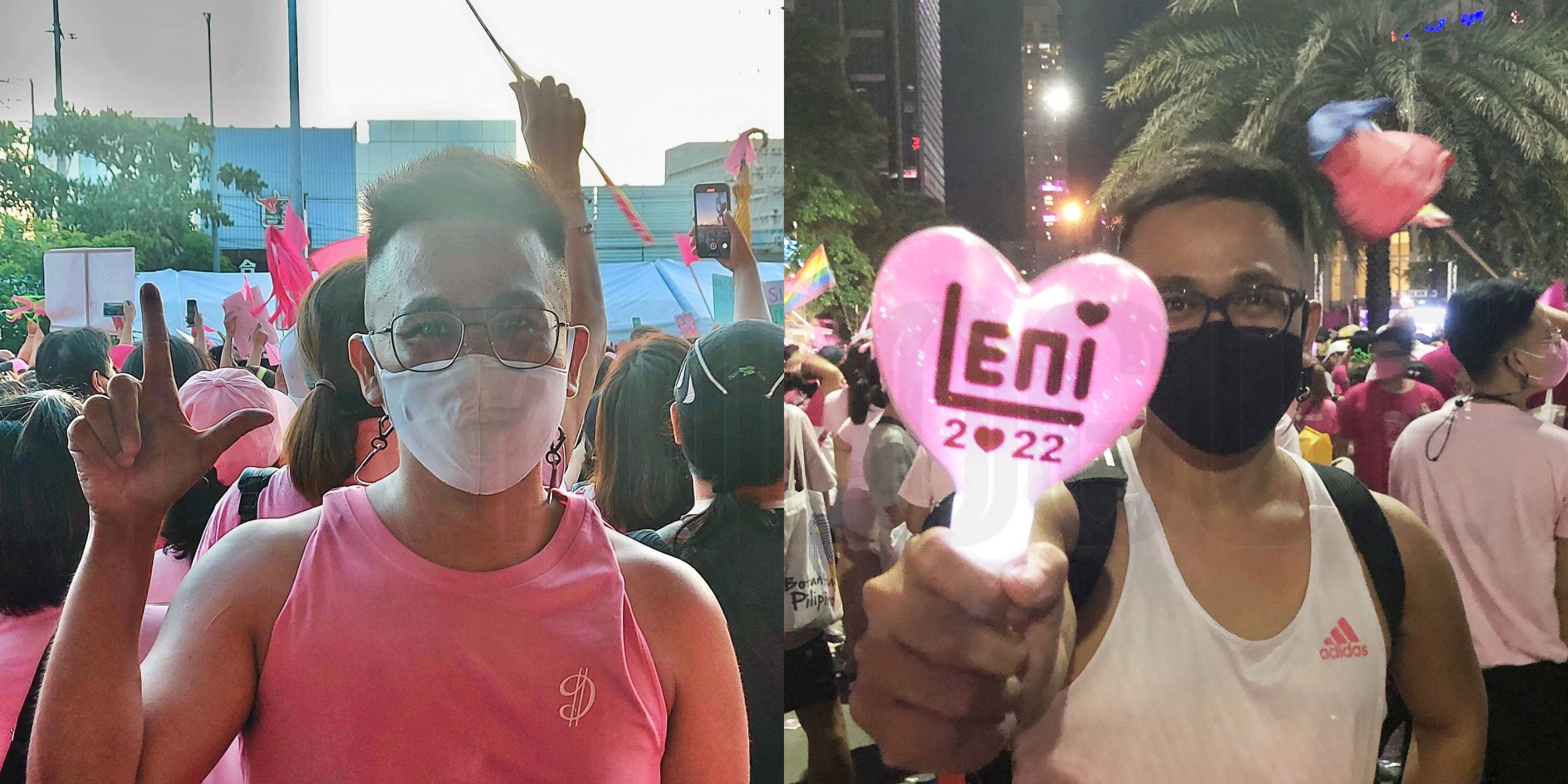I was on half-day leave the day before because today’s recognition rites (a.k.a. college graduation) took place very early in the morning. The assembly time was at 7:00 AM, even if the ceremony itself would not take place until 8:00 AM. I had a hard time sleeping because at 12:00 AM, I am normally on my way home, so sleep was difficult to come by. Perhaps I was a bit excited as well? =)

The earliest graduation ceremony I have ever attended

I was very happy to graduate with these guys

Fresh-faced graduates
We arrived five minutes after 7:00 AM and there were already a lot of people outside the University Theater. The weather was good but I think the ladies were not particularly keen with the sun shining brightly over their freshly made up faces.
However, there was a collective sense of anticipation in the air, and everyone was busy taking photos with their families and friends, and congratulating each other over finally making it. Around 8:00 AM, the first group (i.e. that was ‘us’) made our way inside the theater amidst the cheering crowd of graduates who were so delighted with the processional.

CSSP@30 displayed prominently on the stage

I needed to have a solo picture LOL

We were seated two rows behind former UP President Nemenzo and my Anthro prof two years ago, Dean Nestor Castro
We were given a copy of the program, and I was delighted to see the name of former UP President Nemenzo as the guest speaker. He was the UP President when I entered UP Diliman in 2003, when he was eventually replaced by the President Roman in 2005. I was quite shocked, however, how elderly President Nemenzo was.
I remember him being extremely energetic in an event in the Faculty Center before, but then that was almost a decade ago. Of course a lot of things has changed by 2013. I particularly loved his more than twenty minute-speech, because it has a lot of facts on realities of life in the Philippines (and also being Filipino in the impending economic integration of ASEAN in 2013), which would, honestly, not make sense years ago if I did not take International Studies. =D
From what I recall from his speech, he gave three pieces of advice to the graduates. First, he pointed out the importance of remaining a student forever, and how graduation is not the end of one’s education and it is a new beginning.
His second advice was over the importance of the liberal arts and how it was wrong to question its relevance, given that it humanizes the impacts of technology because the latter has social implications.
Lastly, he gave a very candor caveat “hope for the best and prepare for the worst”, warning on both the benefits and consequences of the neoliberal order, and the possibility of exploitation, especially on the Philippines if it will be furthermore integrated into the capitalist model of development. Marx, Engels and Wallerstein suddenly began speaking to me again.
What struck me the most in his speech was the importance of having a critical mind, which gives the burden and challenge for the knowing to do something for others:
“With a critical mind, you can distinguish good from evil, right from wrong, wisdom from non-sense. It allows us into fits of outrage at corruption and the abuse of power; but it also obliges us to support, what is just, reasonable and progressive.” – former UP President Francisco Nemenzo Jr.

With Mon during my recognition rites

Mama and me, with the token (medal) gievn to the graduates of master’s degree
There was almost a mishap with Mama. When it was time for the graduates to go on stage and receive the diploma and medals (for some), we were just informed right there and then that our parents should be going on stage with us.
I had to make a quick phone call to Mon, so that he can let Mama know and she can sprint all the way to the stage. She just made it in time when my name was called and in the process, she has almost slipped and has already lost her Php 100 corsage.
It was a surreal moment for me, and I could not imagine how more surreal it was for her. She has never done this in any of my graduation and I could not believe it was finally happening. We walked hand in hand and she was almost teary-eyed while putting the medal on me. After more than two decades, I have a parent on stage with me. =D

We were the first bunch to have our pictures taken here

Mama, Mon and I
It was a long ceremony and good thing Mon went outside to buy some snack from vendors selling street food. The two pieces of toasted bread I have eaten for breakfast seemed ages ago.
At around 12 noon, the whole event was already over and that our group were so delighted that we did not bother finishing the recessional and headed straight to the stage to have our pictures taken with the big “CSSP@30″ on stage!
After taking my photos with my classmates, I went looking for Mon and Mama, but turned out, they were already outside the theater. LOL I had to call them back inside because I needed my photos with them on stage. Yep, I am really that traditional with this sort of photos.

UP Pep Squad drummers outside the University Theater
And of course, the sound of the bass and snare drums followed. It is usually customary that UP Pep Squad drummers and/or dancers go to the recognition rites of whatever college/institute/school inside the campus, as long as it has a graduating member.
In 2007, I even had a short stunt with some of my teammates when my name was called. LOL That was quite a scene. This time, though, I was just a mere expectator and I was delighted over the support of the drummers to their CSSP graduates. I heard familiar beats and it sent shivers down my spine. I can still ‘mentally’ do the routine on some of the things they have played, but alas, the mind was willing but the body was not yielding! =P

Nothing special when we went home after, because I was saving the dinner outside with my family and friends after the University Graduation tomorrow. I then thought of digging out the token I got from my college graduation and even if I was decimal-murdered, the Dean of the College of Arts and Letters that time, National Artist Virgilio S. Almario, was gracious enough to provide everybody with a medal.
No one went home empty-handed, fair enough. Looking at these two, it was really amazing to think over how far I have come along. Few minutes after taking the photo above, I posted in on Facebook and made an official announcement about the leap from working in the corporate enviroment to an NGO/the humanitarian sector.
Well, I will still be technically working in my old company but I am really excited to start working for the NGO. Meanwhile, I have to wash the barong tagalog and the camisa de chino, which I will be both using again tomorrow for the University Graduation!




















